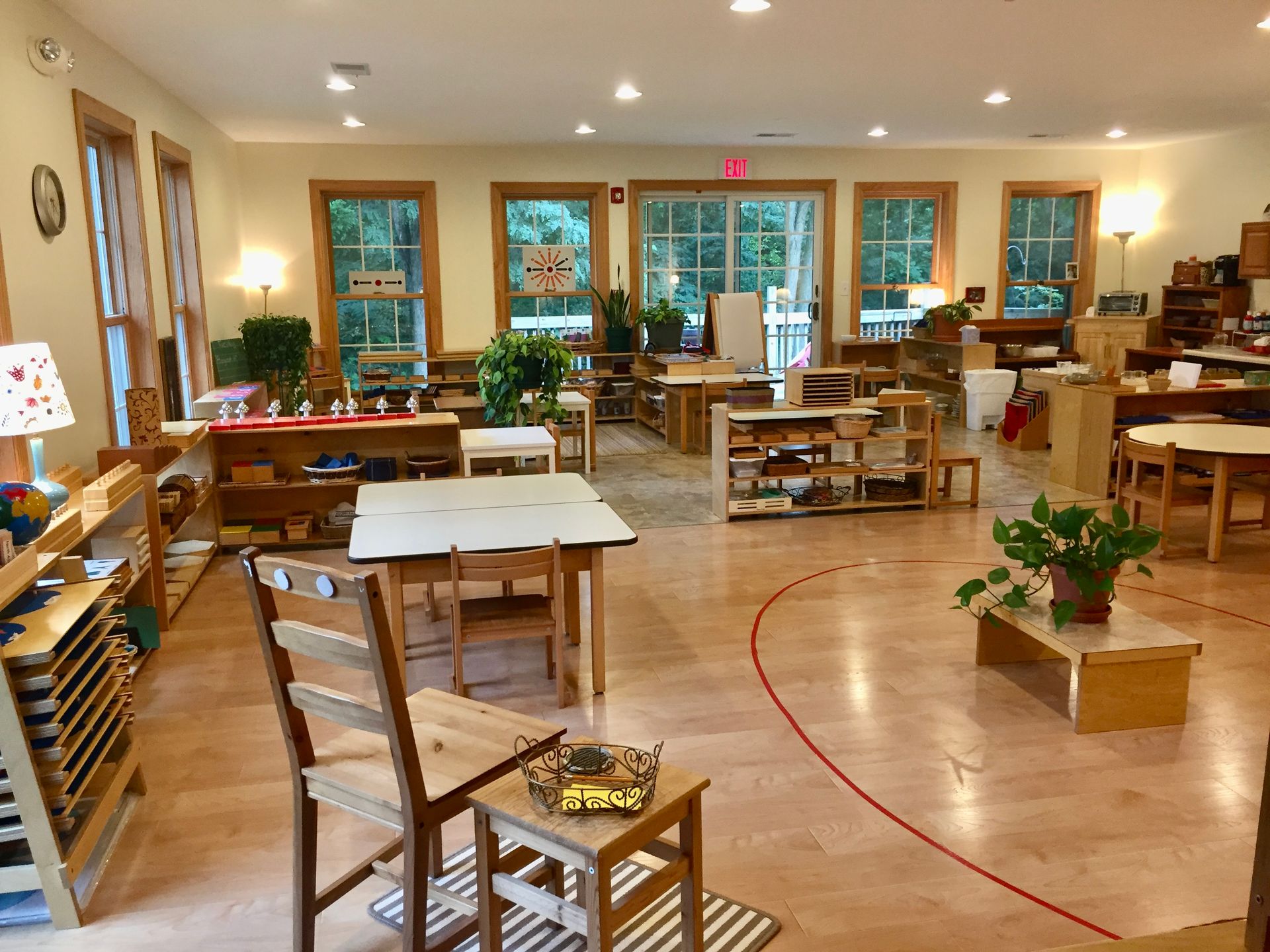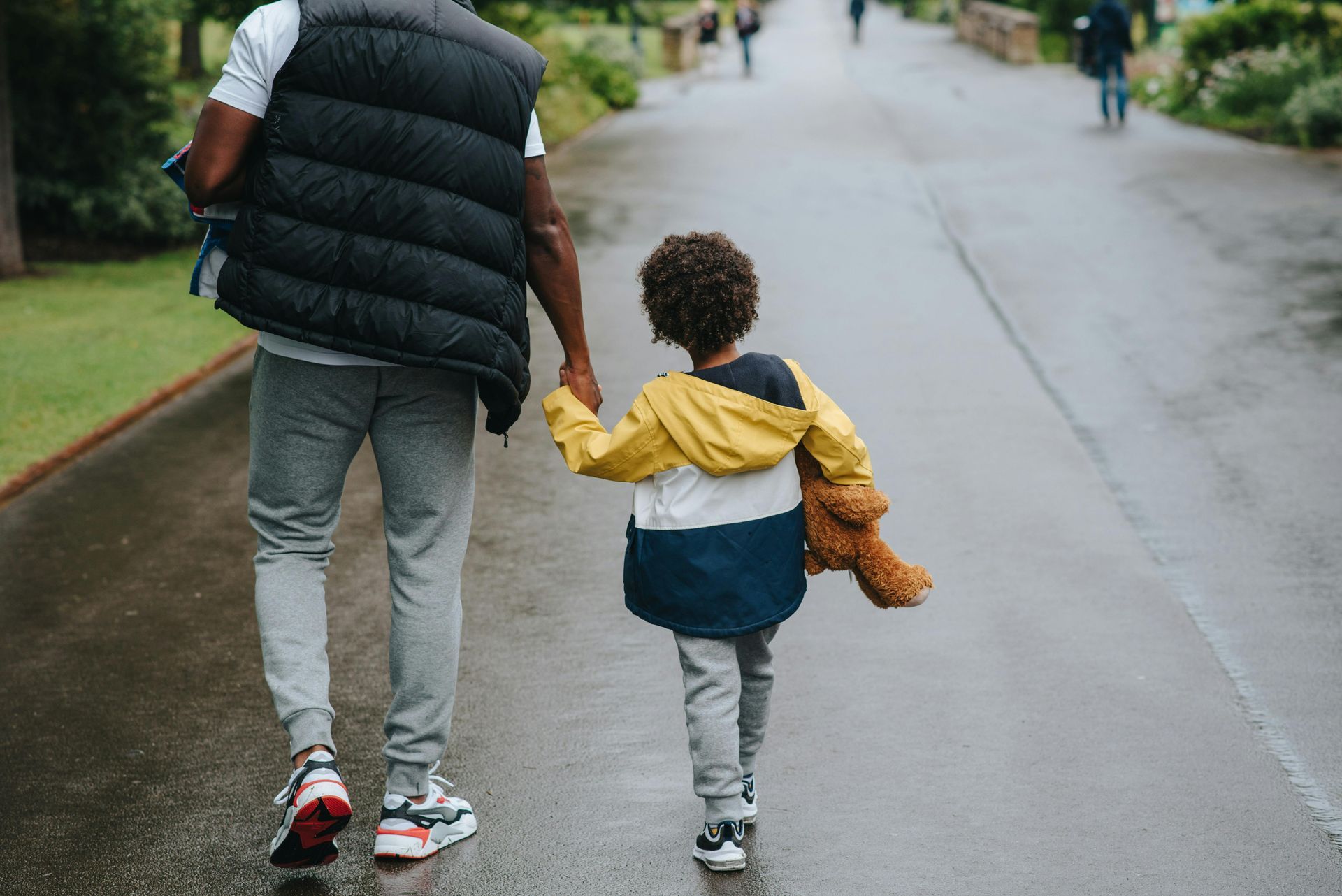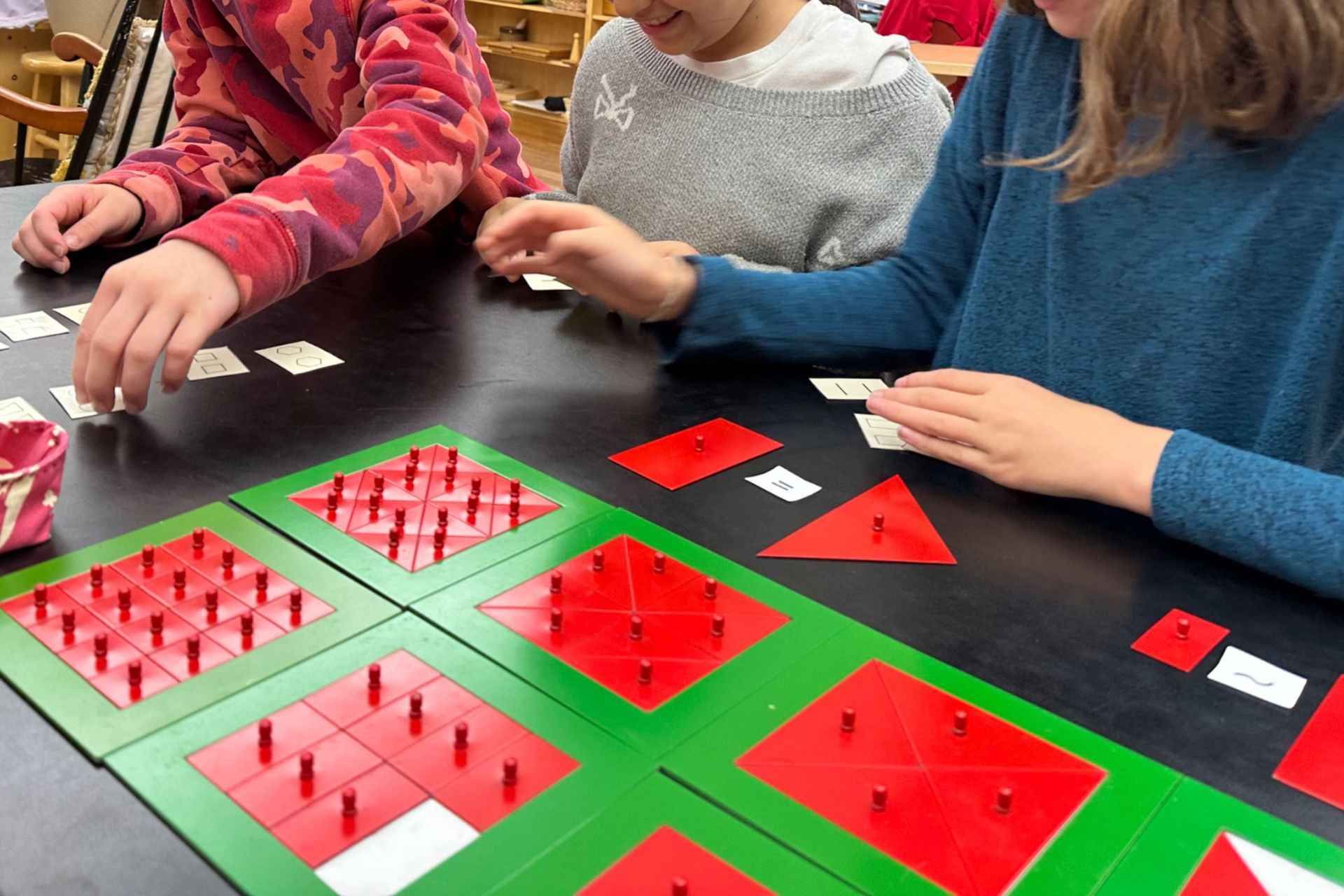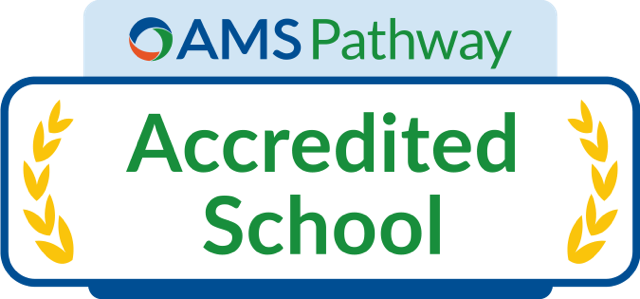
The first week of school has come and gone, and while the excitement is fresh, the transition can still feel big for both children and parents. Even after the initial first days, many children continue to adjust emotionally, physically, and socially to their new rhythm. As families, we can gently support this process to create a sense of calm, confidence, and connection in the weeks ahead.
The Montessori philosophy reminds us that preparation of the environment—and of ourselves—goes a long way in easing transitions. With a little structure and mindfulness, the second week of school becomes an opportunity to help children settle into routines that will serve them well all year.
Reestablishing Routines at Home
Now that school mornings are here, consistency matters more than ever. Children thrive on rhythm and predictability, so keeping regular wake-up, mealtime, and bedtime routines can make each day smoother. If mornings still feel rushed, consider laying out clothes and preparing lunches the night before. This not only prevents stress but also gives children a sense of readiness and independence.
Supporting Emotional Adjustment
It’s normal for children to feel a mix of excitement and fatigue as they continue settling in. Some may express reluctance about returning each morning, while others may come home full of energy or even tears. Validating their feelings while offering reassurance helps build resilience. Simple words like, “I can see that you’re tired after such a full day” or “You worked hard at school today” let children know you understand.
Creating small rituals can also provide comfort—but they work best if done before arriving at school. A cheerful goodbye at home or in the car, before reaching the drop-off line, allows children to be ready when a carline helper comes to greet them. Keeping this routine short and predictable helps children gain confidence, especially when they know exactly what to expect each day.
Creating Calm and Order
By the second week, school bags, shoes, and lunchboxes have likely already begun to collect by the door. Establishing a simple “landing spot” for school belongings keeps the home environment peaceful and organized. A low hook for school bags, a bin for shoes, and a shelf for lunch items allow children to manage their things independently.
At the end of the day, encourage your child to hang up their coat, unpack their bag, and place lunch containers in the kitchen. These small responsibilities build independence and contribute to a smoother family rhythm.
Building Connection
Children feel more secure when they know they are supported both at school and at home. Asking the right kinds of questions helps strengthen this connection. Instead of asking, “What work did you do today?”—which can be frustrating for children since Montessori materials are not always easy to name or explain—try open-ended questions such as, “Who did you enjoy spending time with today?” or “What was your favorite part of your day?” These invitations help children share without pressure, while also showing your genuine interest in their experiences.
Coordinating playdates or time with classmates outside of school can also strengthen friendships and help children feel connected to their community.
Maintaining Balance
By now, many families notice the impact of long school days: children may be more tired, more emotional, or in need of downtime. Protecting adequate sleep and limiting over-scheduling gives children the space they need to recharge. Nutritious meals and regular movement outdoors will also help sustain their energy and concentration.
Encouraging Independence
The early weeks of school are a wonderful time to nurture independence. Whether it’s choosing between two snack options, helping set the table for dinner, or preparing part of their lunch, even small choices help children feel capable and trusted. At school, children are practicing independence daily—mirroring this at home supports consistency and growth.
The result? A smoother transition, less stress for families, and children who feel grounded and confident as they settle into the school year.
Curious to learn more about how Montessori supports children through transitions? We invite you to connect with us and see our classrooms in action!




